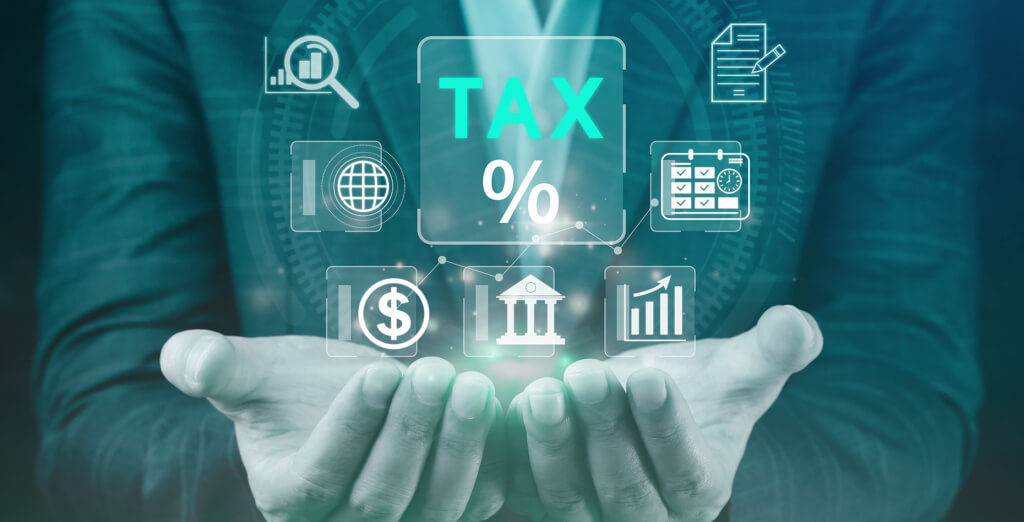
Business 101: How AI tax preparation helps restaurants
Last Updated: November 5, 2025
It is tax season once again, and we’re here to give you a list of tools for AI tax preparation for restaurants. The process of preparing and filing tax returns for restaurants can be intimidating. Good thing AI tools are here to help!
These artificial intelligence (AI) technologies can help your restaurant analyze financial data, find credits and deductions, and ensure compliance with tax laws and regulations.
For restaurant owners, using restaurant tools like QR code menu software, smart tax AI, and licensed CPAs make the tax season run smoothly for your business.
What is tax preparation?
Tax preparation in restaurants refers to the process of calculating and filing tax returns with the federal, state, and local governments.
This involves gathering and compiling financial data—income, expenses, and deductions—over a specific time period, usually a year. The data is then used to determine the total tax amount owed to the government.
Common types of restaurant taxes that restaurant owners will need to pay to include federal income tax, payroll tax, tax on restaurant surcharges, and health taxes. But to ensure you're not missing anything this tax season, it's best to inquire with your local and state governments.
And to meet compliance with all laws and regulations related to taxes, taxpayers can use accounting software to track financial transactions or seek assistance from professional accountants or tax preparers.
What are the tax deductions for restaurants?
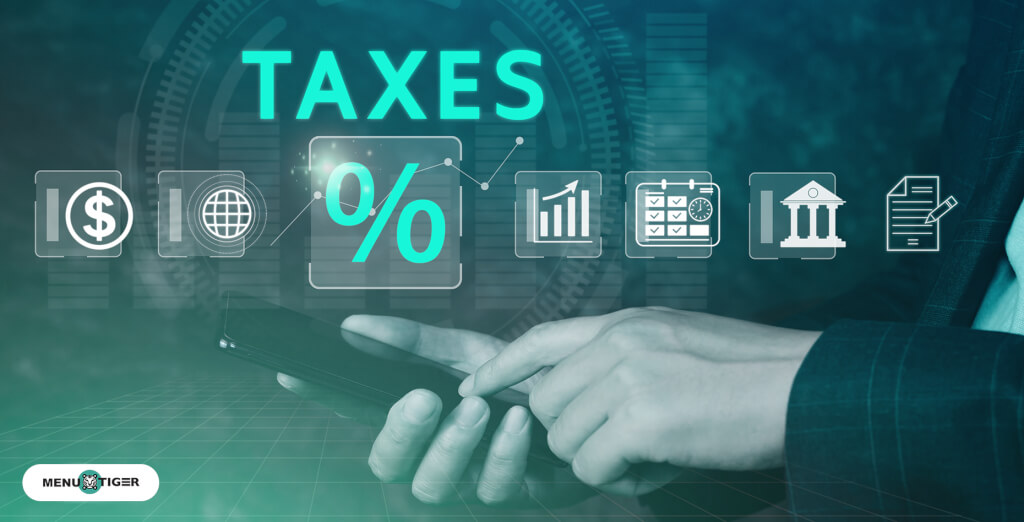
Even during tax season, restaurant owners seek ways to increase their profit margins. Most of these business owners maximize their write-offs and consider tax deductions to reduce their taxable income.
The Balance claims that the qualified business income deduction can lower the net income of your restaurant by up to 20%.
So, knowing the essential restaurant money-saving tax deductions can help you maintain accurate records of your business expenses and reduce your restaurant’s net revenue—which is also a crucial component of being a good taxpayer.
Costs of Goods Sold
The cost of goods sold—like food, small wares, and small appliances—is necessary for running a business operation. These costs are associated with the raw materials used in the production of the goods that your restaurant offers.
Since the cost of foodstuff fluctuates over time—a factor your restaurant cannot control—foods are considered tax-deductible expenses. Additionally, small wares and small appliances depreciate over time, which you can also document to support your tax claims in the event of an IRS audit.
You can calculate your COGS using this formula:
(beginning of the year inventory) + (product purchase) – (ending inventory) = COGS.
Labor Costs
Labor costs are one of a restaurant's biggest costs. This covers your employees' salaries, uniforms, and benefits.
Your chefs, waitstaff, hosts, and other administrative employees play a crucial role in the smooth operation of your restaurant. Since your company cannot function without employees—wages, uniforms, and benefits are tax deductions for restaurants.
These labor expenses are regarded as tax deductions because they can reduce your restaurant's taxable income.
Property Overhead
Property expenses include rent, mortgage payments, utilities, and property taxes. These expenses are considered tax deductible since it accumulates over time.
The Internal Revenue Service (IRS) permits you to deduct the whole amount of your restaurant mortgage in a year when it is paid to help you in keeping track of your annual expenses.
You can substantially reduce your taxable income by deducting other utility costs and the property tax on your restaurant rental.
Physical Assets
Physical assets are your expensive investments to develop and grow your company over time. The IRS permits you to deduct some of these costs, but you cannot deduct the full amount in a single year.
You can use depreciation—the procedure of gradually writing off costs associated with tangible assets over some years—to offset these charges.
Equipment for the kitchen, a deposit for a restaurant, and signage are examples of physical assets. Since their value depreciates over a number of years, these are tax deductible.
Intangible Assets
When operating a restaurant business, it is crucial to understand that it has many intangible assets. This covers your restaurant's business permits, the cost of filing corporation paperwork, registering trademarks, etc.
You can write off the intangible assets of your restaurant through amortization—the process of expensing intangible assets over a period of time.
According to the Accounting Standards Update 2018-15 issued by the Emerging Issues Task Force (EITF), internal-use software is considered an intangible asset for your restaurant. Such software includes an arrangement of licenses that is necessary for your business.
In case your restaurant employs a QR code menu software like MENU TIGER, you can amortize the expense over time if you subscribed to the software annually.
Repairs & Maintenance
Your restaurant needs consistent facility check-ups to meet your customers’ demands. However, you don’t need to worry about an increased taxable income because of repairs and maintenance.
Repairs and maintenance are considered tax deductibles since your restaurant needs to upgrade facilities in order to run the business smoothly.
Save the receipts, list of professional fees, and other service appointment prices to deduct these restaurant expenses from your taxes in a year.
Automobile Expenses
In order to effectively run your restaurant business, especially in the food service industry, you may need to have your own company vehicles. Fortunately, since they are regarded as operating expenses, car expenses for restaurants are tax deductible.
In fact, you can keep track of your actual spending and deduct the expected costs of operating a vehicle using the usual mileage deduction.
To find out the most recent standard mileage deduction rate, visit the IRS website as the standard deduction fluctuates every year.
Professional Services
Filing tax returns for restaurants and other businesses requires the hiring of lawyers, accountants, and other professionals.
As it is notable that these professional services are quite expensive, the IRS allows business owners to deduct the costs for these expenses.
Just make sure to keep records of your professional fee payments and deduct these from your taxable income in order to reduce your taxable income from professional services..
Before proceeding to file your tax returns during tax season, be sure to consult accountants, lawyers, and other professionals who have experience in handling these types of expenses.
You can also check different AI for tax preparation tools and expense management software to see which one can help you keep track of your expenses and file tax returns smoothly.
How can AI help do your restaurant taxes?
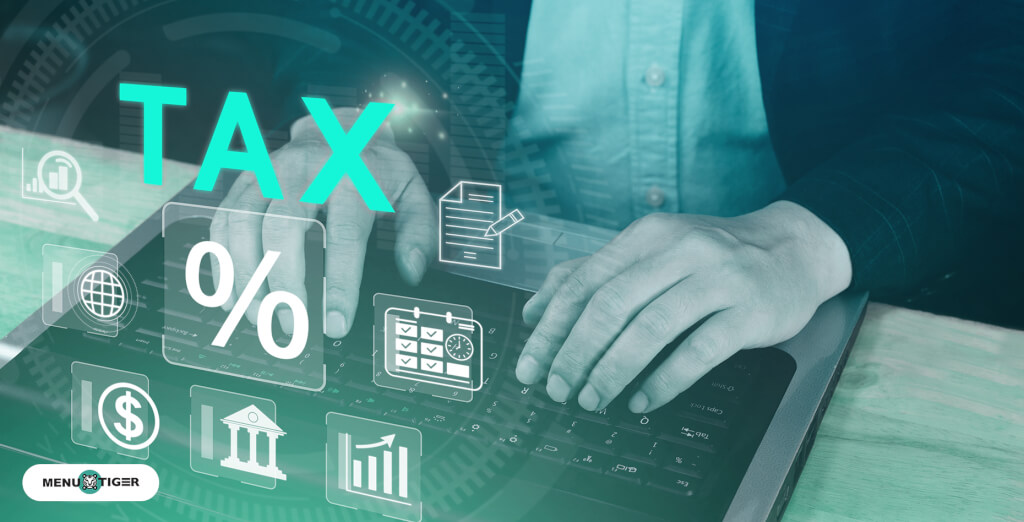
We are in an era where we use AI for tax preparation tools to streamline our business processes, especially in the food service sector. And it is about time to consider using AI tax tools to find patterns and identify anomalies through large tax data sets.
Moreover, these AI tax tools can help tax professionals prepare and automate tasks—especially in calculating standard deductions. Check out how AI can help do taxes for restaurants.
AI can automate tax entries
Your restaurant can automate the tedious task of submitting tax forms and other regulations during tax season with the use of AI tax solutions.
A machine learning algorithm is an AI tool that extracts relevant financial data from documents such as invoices, receipts, and bank statements.
Additionally, an AI marketing agent can help streamline the process of categorizing marketing expenses for tax purposes.
Automating tax entries with the help of these AI tax solutions can do away with data entry errors by offering an audit trail of every user action.
Automating tax entries with the help of these AI tax solutions can do away with data entry errors by offering an audit trail of every user action.
The ability of these AI for restaurants to identify differences between two sets of numbers is essential so that tax returns are processed correctly.
These AI tax technologies enable accountants and other tax experts to respond more promptly and file your restaurant taxes with greater efficiency.
To double-check the accuracy and compliance of automatically categorized data, restaurant owners can also use an AI checker to validate entries before submission—ensuring each deduction, classification, and entry meets the current tax standards.
AI can classify tax-sensitive transactions
AI tax tools examine financial data and extract relevant financial data to pinpoint transactions that are most likely to have legal issues, with the aid of machine learning algorithms.
In fact, tax-sensitive transaction definitions can be built into AI algorithms. In order to identify patterns in the data that are tax-sensitive, it can also be trained on a collection of labeled data that includes transactional information.
Additionally, machine learning algorithms that evaluate transaction descriptions can be utilized to find phrases that can signal potential tax implications, making tax preparation done by AI more efficient.
Using an agentic RAG approach, these tools can dynamically flag unusual or high-risk transactions for further human review.
AI can predict the future of tax liabilities
AI tax tools help your restaurant analyze historical financial data to identify patterns and trends for forecasting future tax liabilities. These systems employ machine learning techniques like time series analysis, predictive modeling, and scenario analysis.
By implementing an AI RAG (Retrieval-Augmented Generation) framework, these tools can dynamically retrieve the most current tax regulations and case-specific rulings. This allows them to generate highly contextualized forecasts, ensuring that your tax liability projections are not only based on your historical data but are also fully aligned with the latest tax codes and compliance requirements.
You can examine previous financial data using the time-series analysis function to spot trends in tax liabilities. Additionally, the predictive modeling method enables you to pinpoint the variables—such as tax regulations, adjustments to business operations, or shifts in the state of the economy—that may have an impact on future tax payments.
Furthermore, you can examine tax laws, regulations, economic trends, and other things that may affect your future tax responsibilities by using the natural language processing component of an AI tax tool.
Knowing these beneficial qualities will allow you to make plans in advance on how to lower your tax burden and be aware of your tax liabilities, especially when you're using an intangible asset like a QR code menu software or a restaurant menu QR code platform in your business.
AI can identify possible deductions and tax credits
You can discover financial information, transactions, and expenses that qualify for tax deductions or credits using machine learning algorithms.
Its classification system is rule-based, and rules that specify which transactions and costs are qualified for tax deductions and credits are programmed into it. It can be beneficial for your restaurant to immediately recognize which expenditures, such as those for equipment acquisitions, property overhead, intangible assets-QR code menu software, restaurant contactless ordering system-and others, qualify as tax deductions.
Moreover, these AI tax tools also allow you to analyze and identify economic trends and patterns that are eligible for tax deductions and credits.

The best AI Tax Tools you can use for your restaurant
You can easily get through tax season with the aid of these AI tax tools. These solutions let you automate tax management procedures from spreadsheets to computerized systems that understand the nuances of tax regulations.
The digitization of tax administration is really progressing more quickly than anticipated, according to 92% of tax managers (Deloitte, 2021).
So, these artificial intelligence tax solutions assist restaurant operators in automatically facilitating the collection of valuable data and adjusting entries in accordance with local requirements.
TaxDome
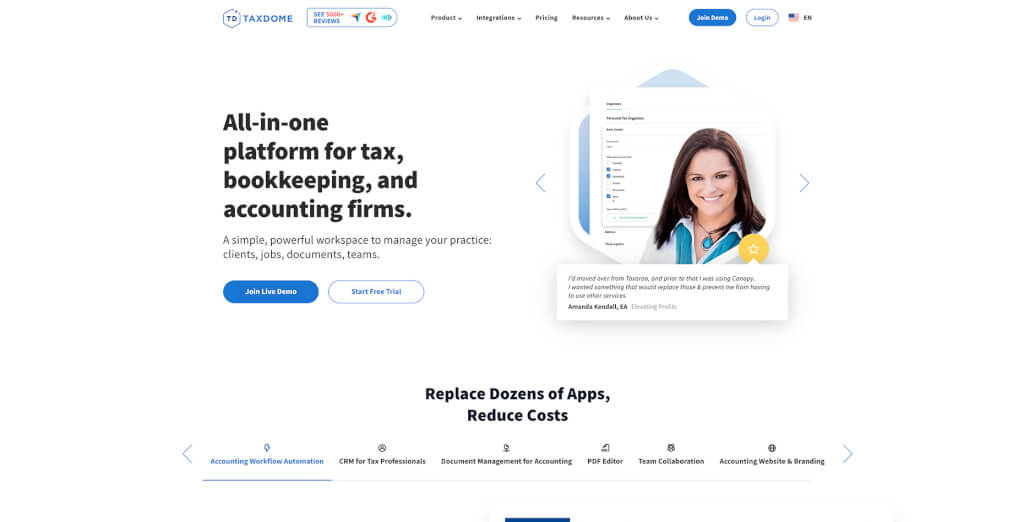
One of the best AI tax solutions available is TaxDome. It is a comprehensive piece of software for accounting, bookkeeping, and tax management.
By replacing the accounting tech stack with a single platform that manages workflow automation, document management, and integrated tax CRM, Taxdome helps business owners lower their operating costs.
Additionally, TaxDome makes it easier to share papers, communicate, and make secure payments—all of which create a more centralized and seamless operation for your business.
Taxfiler
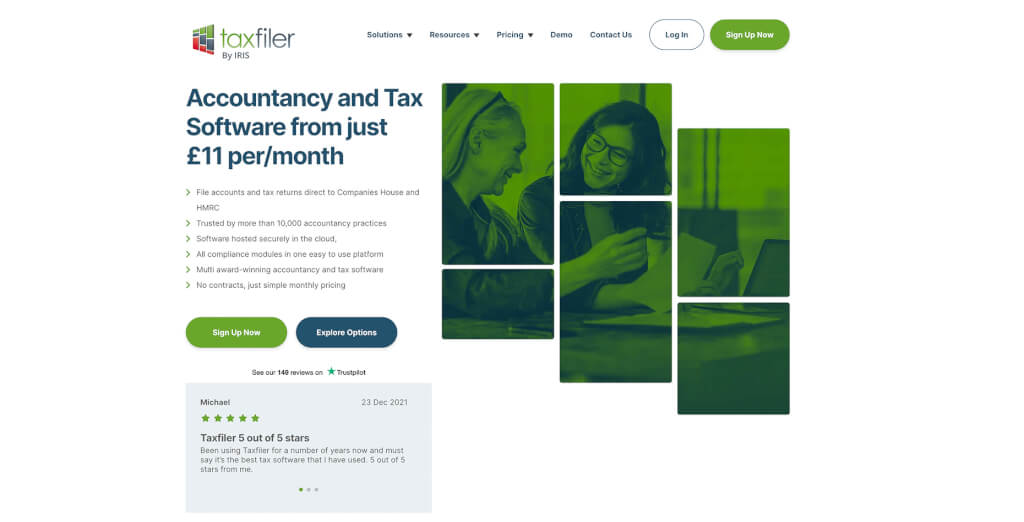
The Taxfiler is another AI tax solution that you can use for your business. This accounting and tax software offers a system for preparing financial statements as well as for reporting corporate, individual, partnership, and VAT taxes as well as tax for trusts and estates.
It also smoothly integrates with other bookkeeping programs while centralizing tax returns. Additionally, The Taxfiler provides a deadline diary that streamlines your tax filing procedures.
Taxfiler streamlines the creation of tax returns and supplemental forms, provides comprehensive compliance with adaptable solutions, and helps you expedite the creation of final accounts starting at the trial balance stage.
Avii
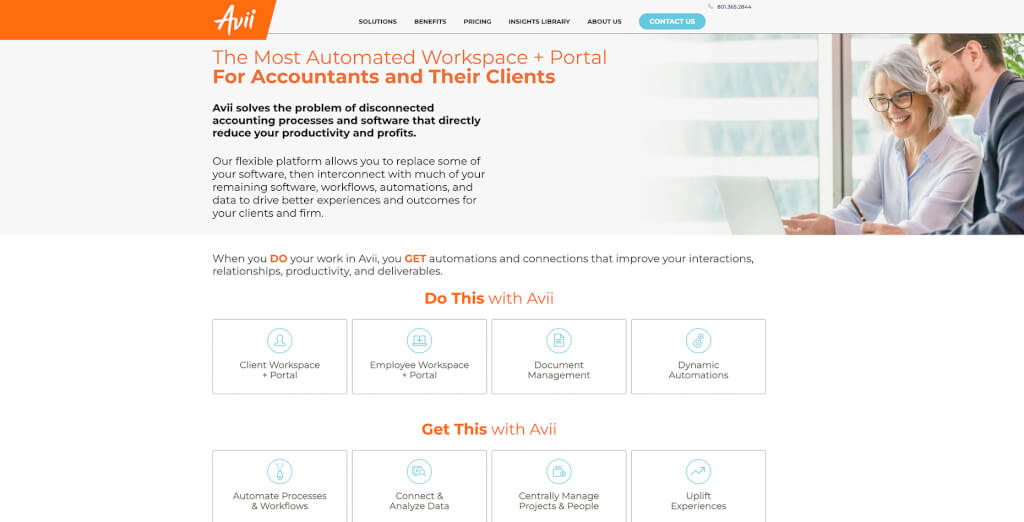
An integrated workspace for accounting teams is offered by Avii, another AI tax application. It has strong tools, automated workflows, and processes. Additionally, it enables you to manage tasks and people from a single platform while gathering and analyzing data.
Additionally, Avii provides automation that boosts productivity throughout tax season. It links to document and data management, and by making real-time data easily accessible, it encourages better collaboration.
Taxaroo
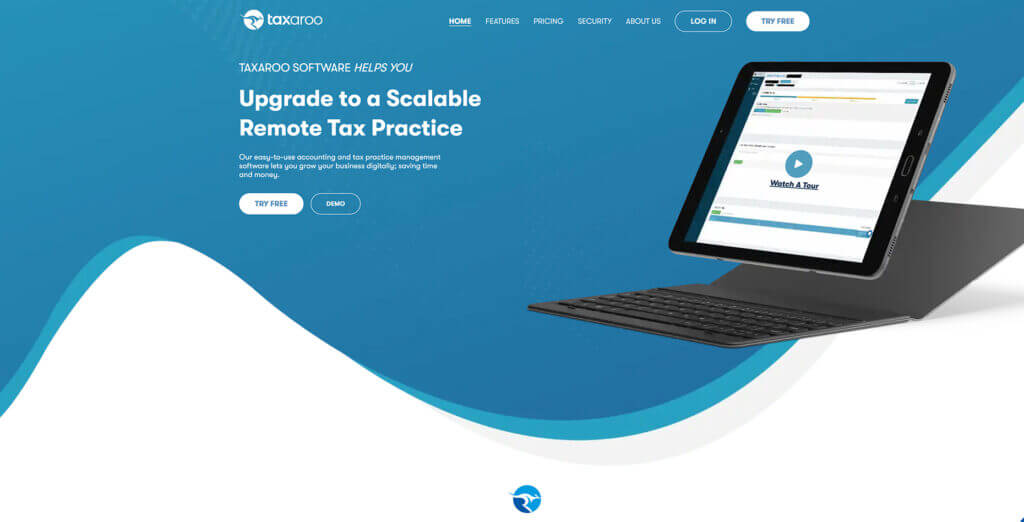
One of the most useful AI tax tools for your company is Taxaroo. It features a software program for managing tax and accounting practices online that offers solutions for enhancing operational effectiveness.
It features Stripe integration for simple invoices and payment sends, includes a configurable client organizer, and a secure document portal.
You can also quickly sign documents with Taxaroo's electronic signature feature, which complies with the IRS.
Corvee Tax Planning
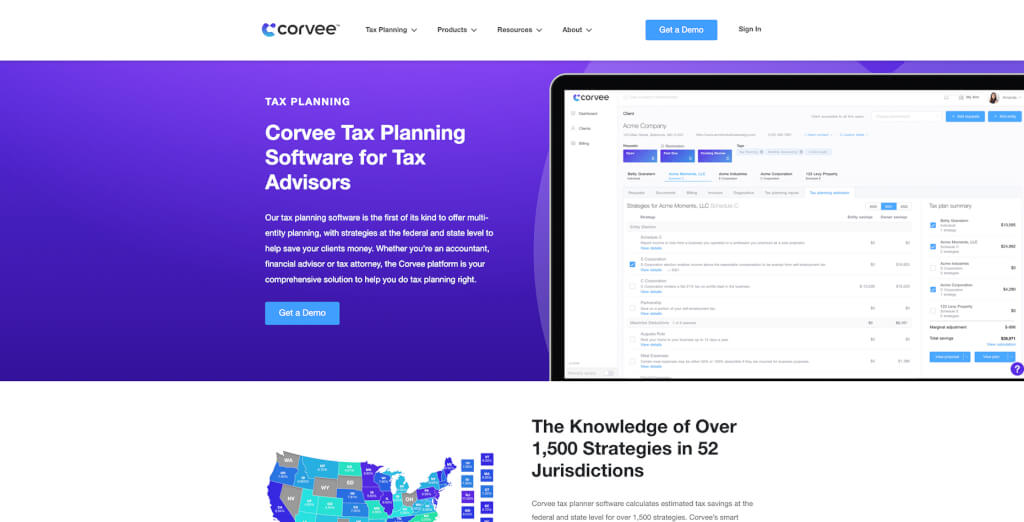
One of the efficient AI tax tools utilized by accountants, tax consultants, and tax lawyers is Corvee Tax Planning. It is a platform for accounting that provides multi-entity planning and determines projected task savings at the federal and state levels.
Using its tax return scanning tool, this AI tax technology gathers each client's tax data for the previous year.
Corvee Tax Planning is another tool that employs a questionnaire to create strategies for clients, includes comprehensive IRS guidelines and standards, and delivers clear computations.

Fast-track your tax returns filing using AI tax preparation for restaurants
The filing of tax returns is one big responsibility you need to fulfill as a business owner. Sure, it’s quite tedious, but we’re lucky to be living in an age where mostly everything can be automated and tracked easily, so tax audits and filings are now made a lot easier.
The good news is that there are tools like QR code menu software, inventory management software, and tax preparation done by AI for restaurants available today. These tools help make it easier for you to compile data and all the information you need on tax filing day.
Claire
Claire, with two years of writing experience and a deep love for the restaurant industry, seamlessly blends creativity and SEO skills, utilizing her MENU TIGER expertise to create content that pleases both readers and search algorithms.


